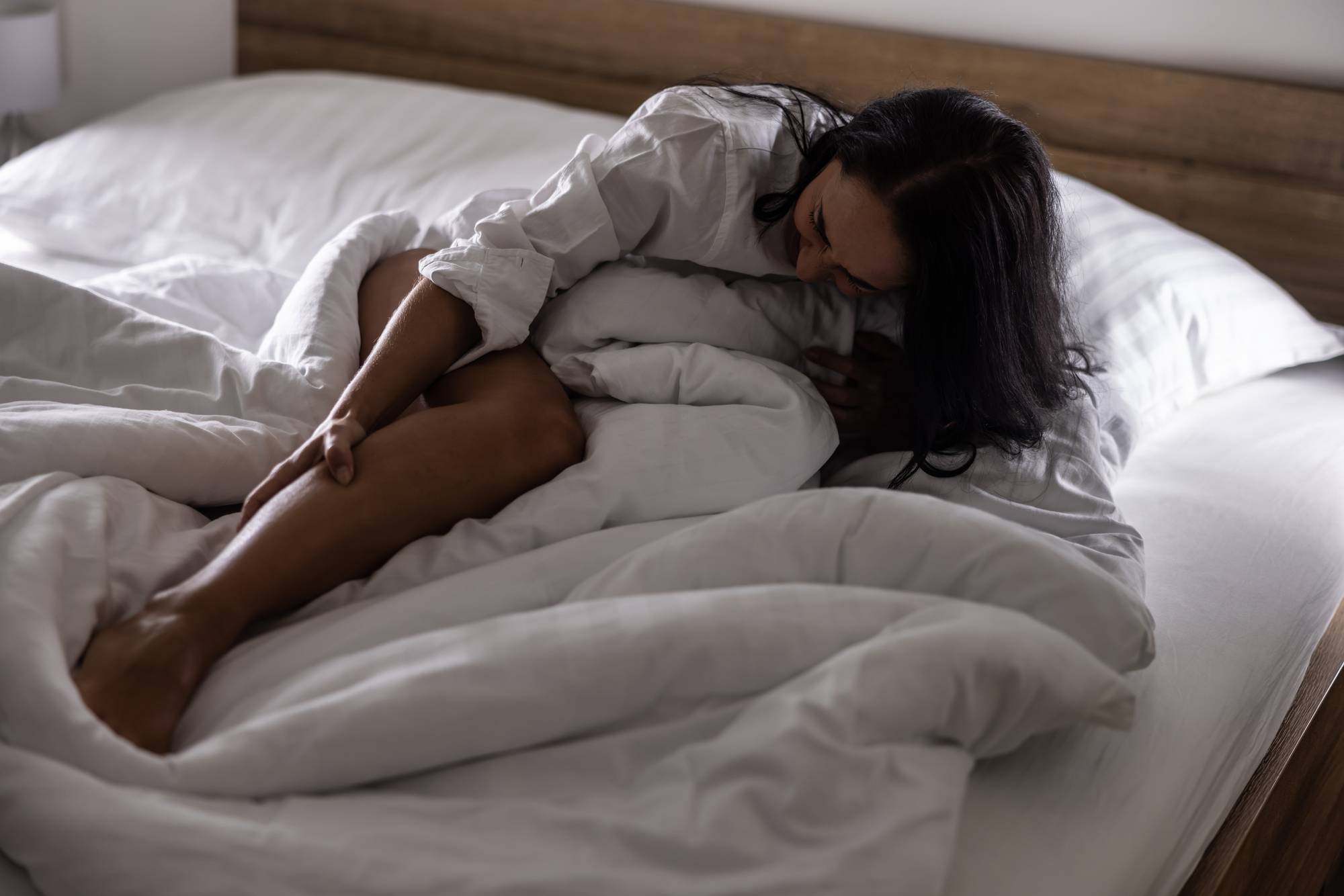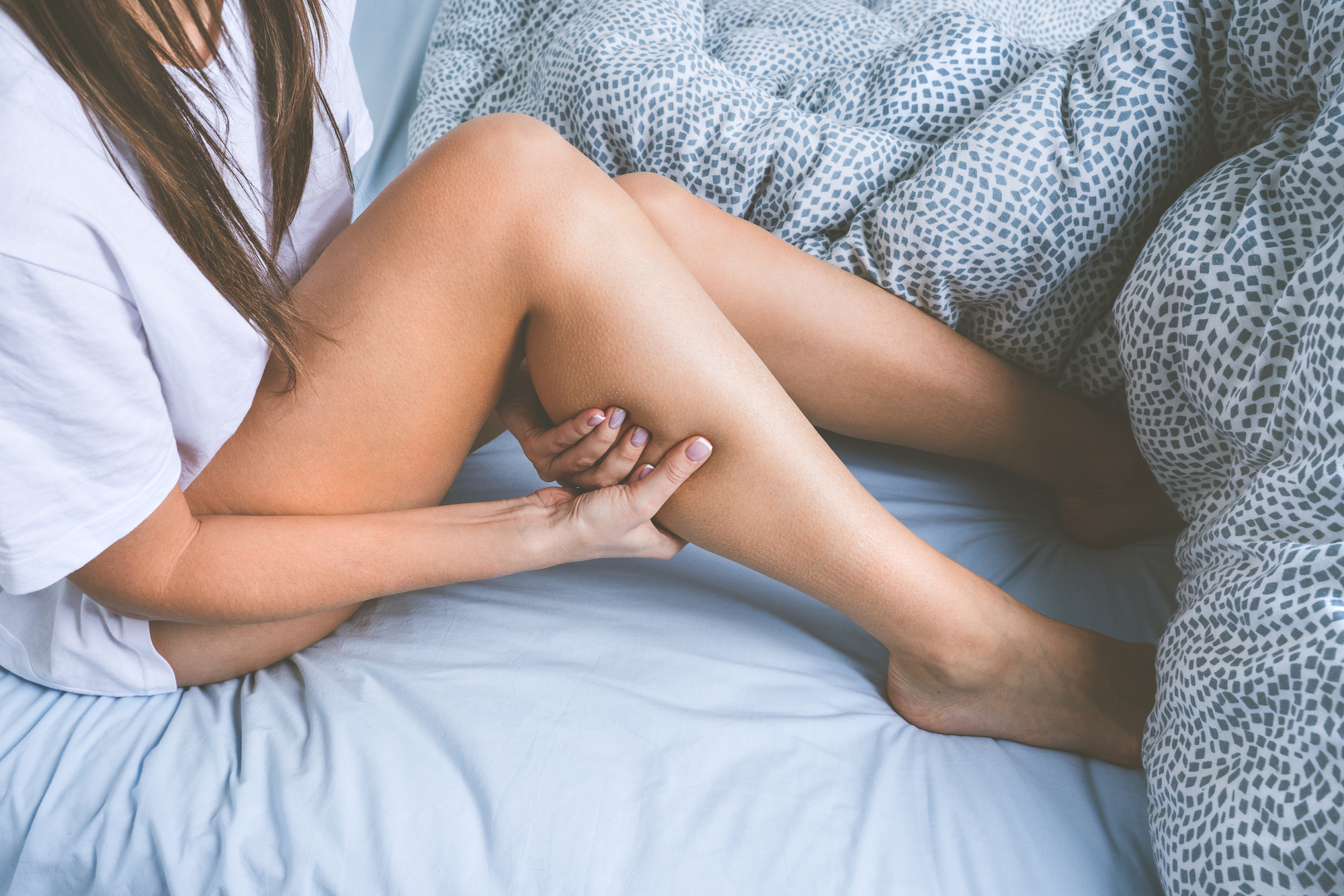
Nighttime leg cramps can disrupt your sleep and leave you feeling sore for hours afterwards. These sudden contractions of the muscles in your legs are not only painful but can also be a significant nuisance. To tackle them effectively, it’s essential to understand that prevention can be as straightforward as adopting a simple bedtime routine.
Establishing a routine that relaxes your muscles before sleep can significantly reduce the incidence of leg cramps. Key components of such a routine involve gentle stretching exercises, which have been shown to alleviate and prevent the discomfort associated with nocturnal leg cramps. Regularly stretching your calf and hamstring muscles can make a difference in the frequency and severity of the cramps, giving your muscles the flexibility they need to rest without tension.
Hydration plays a crucial role in muscle function, and ensuring you are well-hydrated throughout the day can help your muscles contract and relax more smoothly. By combining adequate fluid intake with a consistent pre-sleep stretching routine, you can create an effective defense against those troublesome nighttime leg cramps, leading to a more peaceful and restful night’s sleep.
Understanding Nighttime Leg Cramps

Nighttime leg cramps are painful and sudden contractions of the muscles, most commonly in the calf muscles, that occur during the night or during periods of rest.
Causes of Leg Cramps
The exact cause of nocturnal leg cramps isn’t always clear, but several factors may contribute to these muscle cramps. Muscle fatigue and nerve dysfunction are common culprits, which can be exacerbated by an electrolyte imbalance due to insufficient levels of minerals like magnesium, calcium, and potassium. Prolonged sitting or standing, especially on hard surfaces, or overexerting the muscles can also trigger cramps. Additionally, dehydration can lead to muscle cramps, making it essential that you stay properly hydrated, especially after exercise. Certain medications such as statins may also be associated with an increased risk of leg cramps.
Risk Factors and Related Conditions
Your risk of experiencing nocturnal leg cramps can increase due to several factors and related health conditions, notably:
- Age: The incidence of leg cramps can increase as you age.
- Pregnancy: Pregnant women often experience leg cramps, particularly in the later stages.
- Medical Conditions: Health issues like diabetes, hypothyroidism, peripheral neuropathy often related to diabetes, Parkinson’s disease, and restless legs syndrome can all increase the likelihood of cramps.
- Lifestyle Choices: Excessive consumption of alcohol can contribute to dehydration and cramps. Moreover, individuals with flat feet may experience cramps more frequently.
Understanding these factors can help you identify why you might be suffering from leg cramps and guide you on how to modify your lifestyle or address specific conditions to prevent them.
Effective Bedtime Routines for Prevention

To alleviate and prevent night leg cramps, integrating specific bedtime routines and lifestyle adjustments can significantly help. Let’s focus on targeted stretching exercises, home remedies, and when to seek professional advice.
Stretching and Exercise Techniques
Begin your routine with stretching exercises to loosen up the muscles. A simple calf stretch can be effective: stand with one foot behind the other and gently push the back heel down onto the floor till you feel a stretch in your calf. Similarly, for your thighs, a standing thigh stretch can ease the muscles. Holding each stretch for at least 30 seconds may offer relief. Also, include a few minutes on a stationary bike or a short walk as part of your physical activity before bed. This can warm up your muscles and make them less prone to cramping.
Lifestyle Modifications and Home Remedies
Incorporate these minor changes for potential big impacts:
- Hydration: Ensure you are drinking enough fluids throughout the day. Dehydration is a common trigger for cramps.
- Minerals: Boost your intake of potassium, magnesium, and calcium through diet to maintain muscle function.
- Warmth: Use a heating pad or take a warm bath before bed to relax muscles.
- Massage: Gently massage the calf and thigh muscles before sleep, which can assist in preventing cramps.
- Covers: Avoid heavy bed covers that push down on your toes, instead allow your feet to position naturally.
When to Consult a Healthcare Professional
If frequent leg cramps disrupt your sleep, it may be time to consult a doctor. When home treatment options do not bring relief, or if you suspect an underlying condition, professional advice is crucial. Your healthcare provider can discuss medication and potentially prescribe medicine to alleviate severe cramps.
Advanced Prevention Tips
Consider these additional strategies:
- Exercise Regularly: Engage in regular exercise during the day to increase muscle strength and flexibility.
- Proper Footwear: Use shoes that offer good support to minimize strain on your legs.
- Diet Adjustment: Sometimes, a slight change in your diet to include more cramp-preventing nutrients can help.
- Environmental Control: Make sure the sleep environment supports muscle relaxation, including the right temperature and enough room for leg movement.
Frequently Asked Questions
These questions address common concerns about preventing and managing nighttime leg cramps. Incorporate these actionable steps into your bedtime routine for relief.
What vitamins are effective in preventing nighttime leg cramps?
Vitamins such as B complex, D, and E have been suggested to manage leg cramps. However, it’s important to ensure a well-balanced diet and consult with a healthcare professional before adding supplements.
Can magnesium supplements help reduce the frequency of leg cramps during the night?
Yes, magnesium supplements may help reduce the occurrence of leg cramps, especially if you have a magnesium deficiency.
Why do leg cramps occur at night and how can I address the underlying deficiencies?
Night leg cramps often happen due to extended periods of inactivity. Address potential deficiencies by including enough potassium, calcium, and magnesium in your diet.
What are some strategies for stopping muscle cramps quickly when they occur?
Immediately stretch the affected muscle, massage the area, or apply a warm compress to relax the spasm and alleviate the pain quickly.
Which medications are known to contribute to nighttime leg cramps and how can they be managed?
Diuretics and certain asthma medications can contribute to leg cramps. Discuss alternatives or mitigative strategies with your healthcare provider if you suspect your medication is a factor.
Are there any specific hydration or beverage recommendations that can help alleviate leg cramps?
Staying hydrated throughout the day is key; water is the best choice. Electrolyte-rich beverages can also be beneficial, but avoid excess sugar and caffeine close to bedtime.